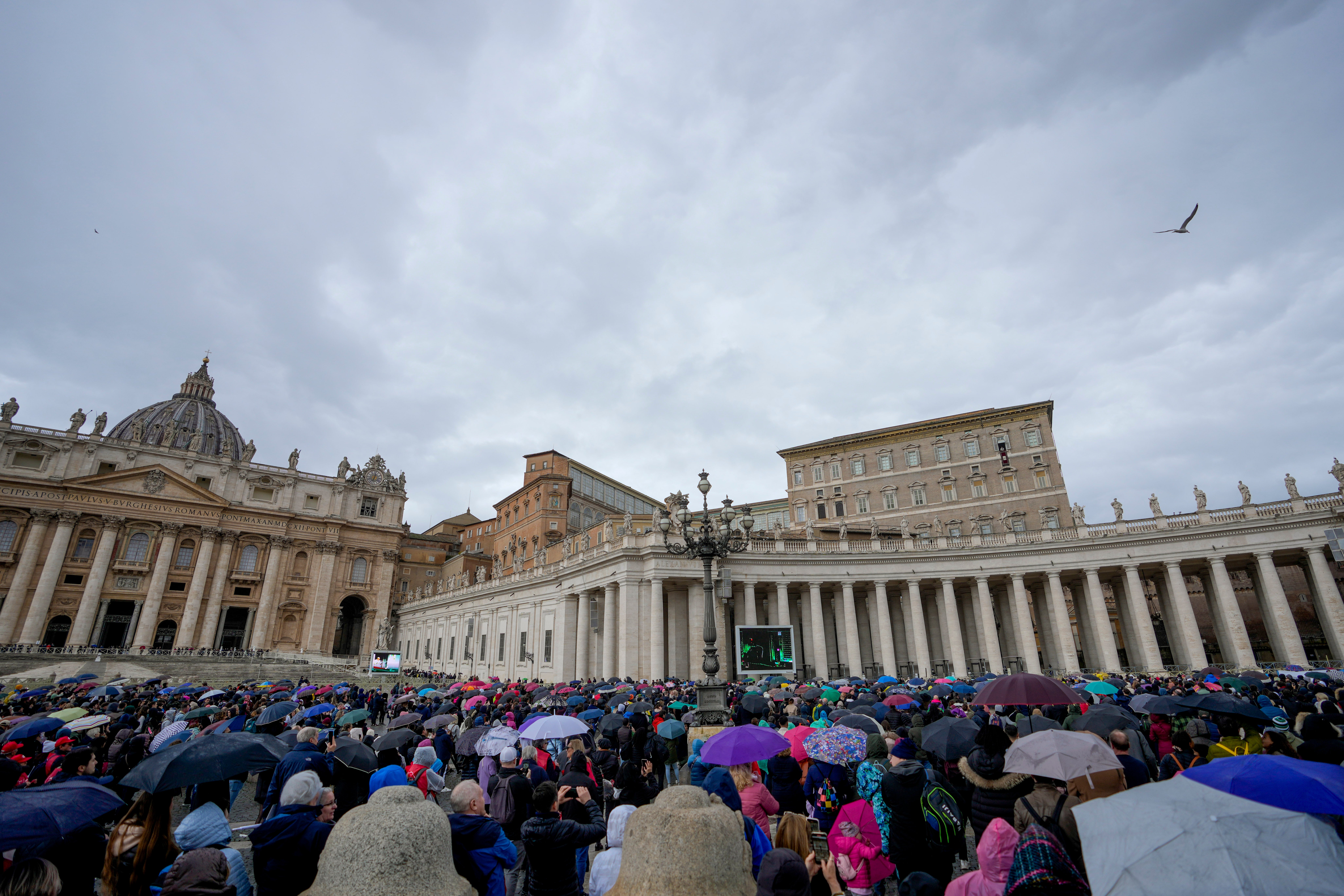2nd Vatican official says pope OK'd ransom payments for nun
A second high-ranking Vatican official has said Pope Francis authorized spending hundreds of thousands of euros in ransom payments to try to free a nun who was kidnapped by al-Qaida-linked militants in Mali

Your support helps us to tell the story
From reproductive rights to climate change to Big Tech, The Independent is on the ground when the story is developing. Whether it's investigating the financials of Elon Musk's pro-Trump PAC or producing our latest documentary, 'The A Word', which shines a light on the American women fighting for reproductive rights, we know how important it is to parse out the facts from the messaging.
At such a critical moment in US history, we need reporters on the ground. Your donation allows us to keep sending journalists to speak to both sides of the story.
The Independent is trusted by Americans across the entire political spectrum. And unlike many other quality news outlets, we choose not to lock Americans out of our reporting and analysis with paywalls. We believe quality journalism should be available to everyone, paid for by those who can afford it.
Your support makes all the difference.A second high-ranking Holy See official told a Vatican court on Friday that Pope Francis had authorized spending hundreds of thousands of euros in ransom payments to try to free a nun who was kidnapped by al-Qaida-linked militants in Mali.
Archbishop Edgar Pena Parra, the Holy See's No. 3, told the Vatican tribunal that he had sought, and received Francis’ approval to wire the money soon after he took up his duties as the “substitute” in the secretariat of state in late 2018.
Pena Parra was answering questions for a second day Friday after being called by defense attorneys representing the 10 people on trial for a host of alleged financial crimes.
One tangent of the Vatican trial concerns 575,000 euros wired from the Vatican’s Swiss Bank account to a Slovenian-based front company owned by Cecilia Marogna, a self-styled security analyst who was hired in 2016 by Pena Parra’s predecessor, Cardinal Angelo Becciu, as an outside consultant.
Becciu told the court last year that he had sought Marogna’s advice in 2017 following the kidnapping of Sister Gloria Cecilia Narvaez by al-Qaida in the Islamic Maghreb, which has bankrolled its insurgency by kidnapping Westerners. During her captivity in Mali, the group periodically showed Narvaez on video asking for the Vatican’s help.
Becciu told the court that Francis had authorized spending up to 1 million euros to free the Colombian nun. Becciu said he and Marogna had travelled to London to meet with, and subsequently hire, the British security firm Inkerman to find Narvaez and secure her freedom. She was ultimately released in October 2021.
In their indictment request, prosecutors alleged a double payment: They said some 500,000 British pounds, or the then-equivalent of 575,000 euros, had been sent to Inkerman’s Barklays Bank account for the operation. Separately, they listed nine payments from the Vatican's Swiss Bank account totaling 575,000 euros sent to Marogna’s Logsic DOO company from Dec. 20, 2018 to July 8, 2019. Citing Slovenian bank records, prosecutors allege that Marogna used the money to buy high-end luxury items and go on vacation.
Both Becciu and Marogna are accused of embezzlement, charges they both deny.
Pena Parra, who replaced Becciu as “substitute,” told the court that he was confronted with the request for payment to the Slovenian account by his deputy, Monsignor Alberto Perlasca, who had been asked by Becciu to process the wire transfer. But Pena Parra said he couldn’t proceed without first securing the pope’s approval.
“I went to the pope. I asked for an audience and the Holy Father confirmed to me the destination of this money, which was for the question of the possible freedom of the Colombian nun kidnapped in Mali,” Pena Parra said under questioning by the tribunal president, Judge Giuseppe Pignatone.
Becciu, for his part, insisted in a spontaneous declaration to the court on Friday that Francis had approved the operation and was prepared to write a statement for Becciu’s defense to that effect when they spoke by telephone on July 19, 2021, days before the trial opened.
Prosecutors recently produced an exchange of letters between Becciu and Francis in the following days in which Francis refused to provide the statement. Becciu produced a letter Friday indicating Francis himself had asked Becciu to provide a draft statement, and the cardinal suggested that his subsequent refusal to sign off on it appeared to have been coached.